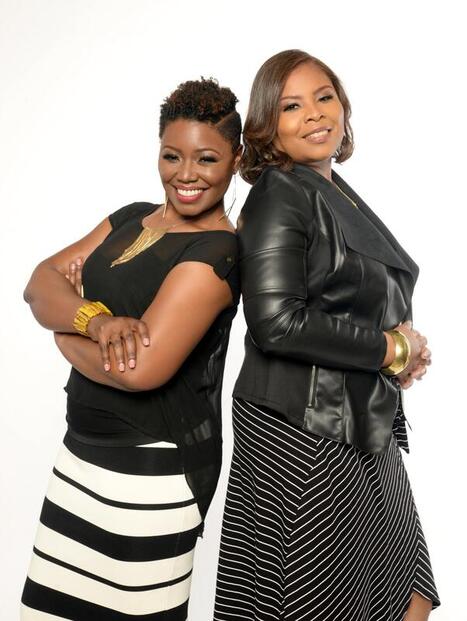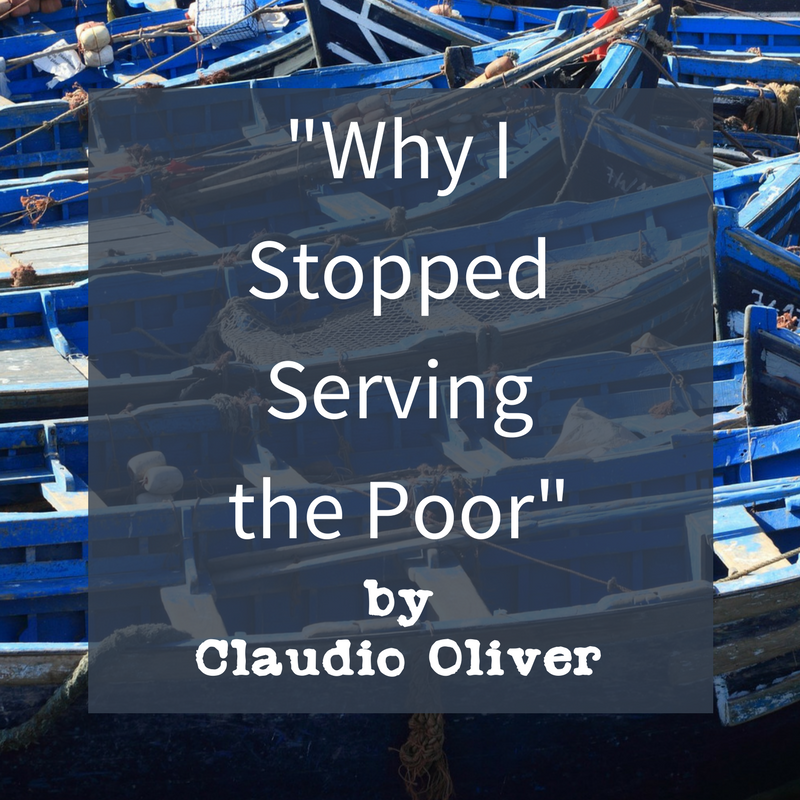 At the very end of my book, Separated by the Border, I use the possessive pronoun “Her” and I talk about God as Inclusive Mother. I know many of my evangelical peers will struggle with this phrase, which is why I wrote this blog. If you have had the opportunity to read the book, you may see this as an overarching theme. I didn’t try to make it a theme, but Lupe’s love showcased the beautifully relentless love of a mother which gave me a deeper understanding of God’s love. So I want to lay out why I chose to use such language and why I think it’s important. Let’s start at the beginning. All verses are in the NIV unless otherwise noted. Genesis 1:2
Now the earth was formless and empty, darkness was over the surface of the deep, and the Spirit of God was hovering over the waters. The word Spirit is the word Ruach in Hebrew. It means Breath or Wind. Genesis 1:26-27 (NASB) Then God said, “Let Us make man in Our image, according to Our likeness; and let them rule over the fish of the sea and over the birds of the sky and over the cattle and over all the earth, and over every creeping thing that creeps on the earth.” God created man in His own image, in the image of God He created him; male and female He created them. Some theologians read this and say that God’s image holds both male and female in it if in God’s likeness we are being created. Genesis 2:18 The Lord God said, “It is not good for the man to be alone. I will make a helper suitable for him.” This word “helper” found here is the Hebrew word EZER which is also used several times throughout the Bible to describe God. (Ex. 18:4, Deut 33:7, 33:26, 33:29, Ps. 20:2, 33:20, 70:5, 89:17, 115:11, 121:1-2, 124:8, 146:5, Hosea 13:9) Deuteronomy 32:10-12, 18 In a desert land he found him, in a barren and howling waste. He shielded him and cared for him; he guarded him as the apple of his eye, like an eagle that stirs up its nest and hovers over its young, that spreads its wings to catch them and carries them aloft. The Lord alone led him; no foreign god was with him. (18) You deserted the Rock, who fathered you; you forgot the God who gave you birth. Psalm 131:2 But I have calmed and quieted myself, I am like a weaned child with its mother; like a weaned child I am content. This is a Psalm of David where he is speaking directly to the LORD. Isaiah 42:14 For a long time I have kept silent, I have been quiet and held myself back. But now, like a woman in childbirth, I cry out, I gasp and pant. Isaiah 49:15 Can a mother forget the baby at her breast and have no compassion on the child she has borne? Though she may forget, I will not forget you! Isaiah 66:12-13 I will extend peace to her like a river, and the wealth of nations like a flooding stream; you will nurse and be carried on her arm and dandled on her knees. As a mother comforts her child, so will I comfort you; and you will be comforted over Jerusalem. Hosea 11:3-4It was I who taught Ephraim to walk, taking them by the arms; but they did not realize it was I who healed them. I led them with cords of human kindness, with ties of love. To them I was like one who lifts a little child to the cheek, and I bent down to feed them. Matthew 3:16-17 (NASB) along with Mark 1, Luke 3, John 1 — The Baptism of Jesus After being baptized, Jesus came up immediately from the water; and behold, the heavens were opened, and he saw the Spirit of God descending as a dove and lighting on Him, and behold, a voice out of the heavens said, “This is My beloved Son, in whom I am well-pleased. In the Baptism of Jesus, we read that the Spirit of God descended on Jesus like a dove and then a voice from heaven says, "This is my Son, in whom I am well pleased." We often assume that the voice from Heaven is Father God's voice. But God the Father is never mentioned in this passage. It is the Holy Spirit who is mentioned. What if it is the Holy Spirit who is doing the speaking? What if the Holy Spirit is saying, "This is My beloved Son." I think that if we can theorize that it's God the Father's voice, we can also theorize that it's God the Mother's voice, who has sent a dove to her son to remind him in physical form she's there and she's watching over. Matthew 23:37 & Luke 13:34 Jerusalem, Jerusalem, you who kill the prophets and stone those sent to you, how often I have longed to gather your children together, as a hen gathers her chicks under her wings, and you were not willing. Luke 15:8-10 Or suppose a woman has ten silver coins and loses one. Doesn’t she light a lamp, sweep the house and search carefully until she finds it? And when she finds it, she calls her friends and neighbors together and says, ‘Rejoice with me; I have found my lost coin.’ In the same way, I tell you, there is rejoicing in the presence of the angels of God over one sinner who repents. I have to give Emmy Kegler credit for this one. I was listening to a podcast where she was being interviewed for her book One Coin Found, and she said that while studying scripture one day she was looking at the Lost Parables in Luke: The Lost Sheep, The Lost Coin, The Lost Son. She described how we often see God as the shepherd in the parable of the lost sheep. And we often see God as the father in the parable of the lost son, but rarely do we teach that God is the woman searching for her lost coin. John 3:6 Flesh gives birth to flesh, but the Spirit gives birth to spirit. Females give birth, and it’s possible this is a figure of speech. Maybe all the verses above are merely figures of speech, metaphors and similes. But maybe in the same spirit (pun intended) my use of SHE is a figure of speech when referring to God. And if so, why do so many people see that as a faux pas? Because in many ways we cannot define God fully, so in every attempt to do so we are only using figures of speech. Some theologians and some denominations are pushing for genderless pronouns for God. For me, I struggle with this and here’s why: taking the gender away from God makes God less understandable, less tangible, less relatable to me. Andrew and I chose not to know the gender of our second child until the day of her birth. It was hard for me to connect with the baby in my belly because I didn't know what to call the baby: it, baby. That was all the language we had. The surprise on her birthday was big, but I would never do it again. I wanted to connect with the being inside of me during pregnancy and not knowing her gender during that time made it harder to connect. I grew up in a Pentecostal-like church and the Holy Spirit was a very undefinable being, a ghost that slayed people and made weird things happen. For a portion of my life, I ran away from the Holy Spirit because I feared the weirdness of Her. For more on that, check out my article at Missio Alliance. Seeing the Holy Spirit as a mother-figure does three important things:
When I say that God is Mother, and when I use a feminine pronoun for God, I am not saying that God is only Mother or only female. I believe that God transcends gender. But here, I am saying that one way to see God is to see Mother God, alongside Father God, and Brother God. There is no disunity in the Trinity, though most of my life I secretly thought this was the case. I see the unity so much more when I see the Trinity as Divine Family. I will leave you with the words of Jurgen Moltmann, a German reformed white male theologian. From his book The Spirit of Life: A Universal Affirmation: In Trinitarian theology, the image of the divine family raises the Spirit to the same rank as the Father, and puts the Spirit before the Son. Unless, like Ludwig Feuerbach, we wish to cast the image aside altogether as a pure projection of a family idyll, it does offer interesting corrective possibilities, if we compare it with the other pictures of the Trinity - Irenaeus's image of the One God with two hands, for example. But more important than these speculative possibilities is the new definition of what it means for human beings to be the image of God. If the Trinity is a community, then what corresponds to it is the true human community of men and women. A certain de-patriarchalization of the picture of God results in a de-patriarchalization of the church too. Of course by calling God the Holy Spirit 'Mother' we are merely putting parallel to the 'Father' another power as primal source. Psychologically speaking, inward liberation from the mother is as much a part of human development as emancipation from the Father. Like Israel's prophets, Christianity actually replaced the patriachal and matriarchal powers of origin by the messianism of the Child, as the bearer of hope and the beginning of the future. 'Unless you become like children, you will never enter the kingdom of heaven' (Matt 18:3). But this is not brought out by the patriarchal or matriarchal image of God.
0 Comments
 This Wednesday, I am highlighting a good friend of mine, Latresia "Sweet" Peak and her good friend, Holly Harris. The two just released their debut album, 2 for the Price of 1 on June 1. Sweet and Holly have been singing for as long as they can remember. They are both worship leaders with a strong desire to see the Body of Christ & beyond experience the power of worship. They have had the privilege of serving in their local churches, various groups and para-church ministries. Sweet and Holly met on the campus of UNC Charlotte as students and members of Children of the Sun Cultural choir. COS became the catalyst for a friendship that later blossomed into a musical partnership. In early 2017, Sweet and Holly joined forces to plan their first live recording. In doing so, they were able to split cost, encourage one another and benefit from each other's strengths and connections. However, this was more than just a great practical idea, it was a God idea. Coming together required humility, selflessness, self assuredness, patience and a relinquishing of control. In addition, they experienced the hand of God miraculously move in the area of provision! One of my favorite songs on the album is called Talk About It which has a juke-joint vibe: If we say that love covers a multitude of sin, then why are Sunday services so segregated? Can we talk about it? Let's talk about division Let's talk about our past Let's talk about hatred Let's talk about crime Let's have a dialogue And get it all off our chest How are we to ever reconcile our differences? Sweet wrote it a few years ago when police killings were happening regularly. "I had a conversation with a friend who was a believer and we were discussing race and I thought not only is the world segregated, but so is the church," Sweet said. "I hope the song makes everyone stop and think: Am I helping to build bridges of reconciliation or am I building walls of division? How can we each individually be the change? How can we communally be the change?" Awesome God is another great song on the album: Your sovereign Lord, You reign You reign from age to age This whole world can pass away but Your Word will never fade We stand in awe of You and our praise can't be contained So in spirit and in truth We will bless Your holy name "Awesome God is a mid-tempo worship song about the sovereignty of our God. From the beauty of His creation to the breath we breathe, His glory surrounds us all! It was my goal to write a song that expressed how incredible He is," Holly said. "As a result, my hope is that all would experience His presence and love." If you are interested in having Sweet and Holly come and sing at your event or church, send an email to tornroofent@ gmail.com If you are interested in Sweet leading a conversation about racial justice, email Sweet at latresiap@ yahoo.com with the subject "Race Relations". You can help them out by sharing their music, following them on Spotify, listening to their music, having (paying!) them come to your church and sing, and sharing this post! |
Gena's
|

 RSS Feed
RSS Feed

